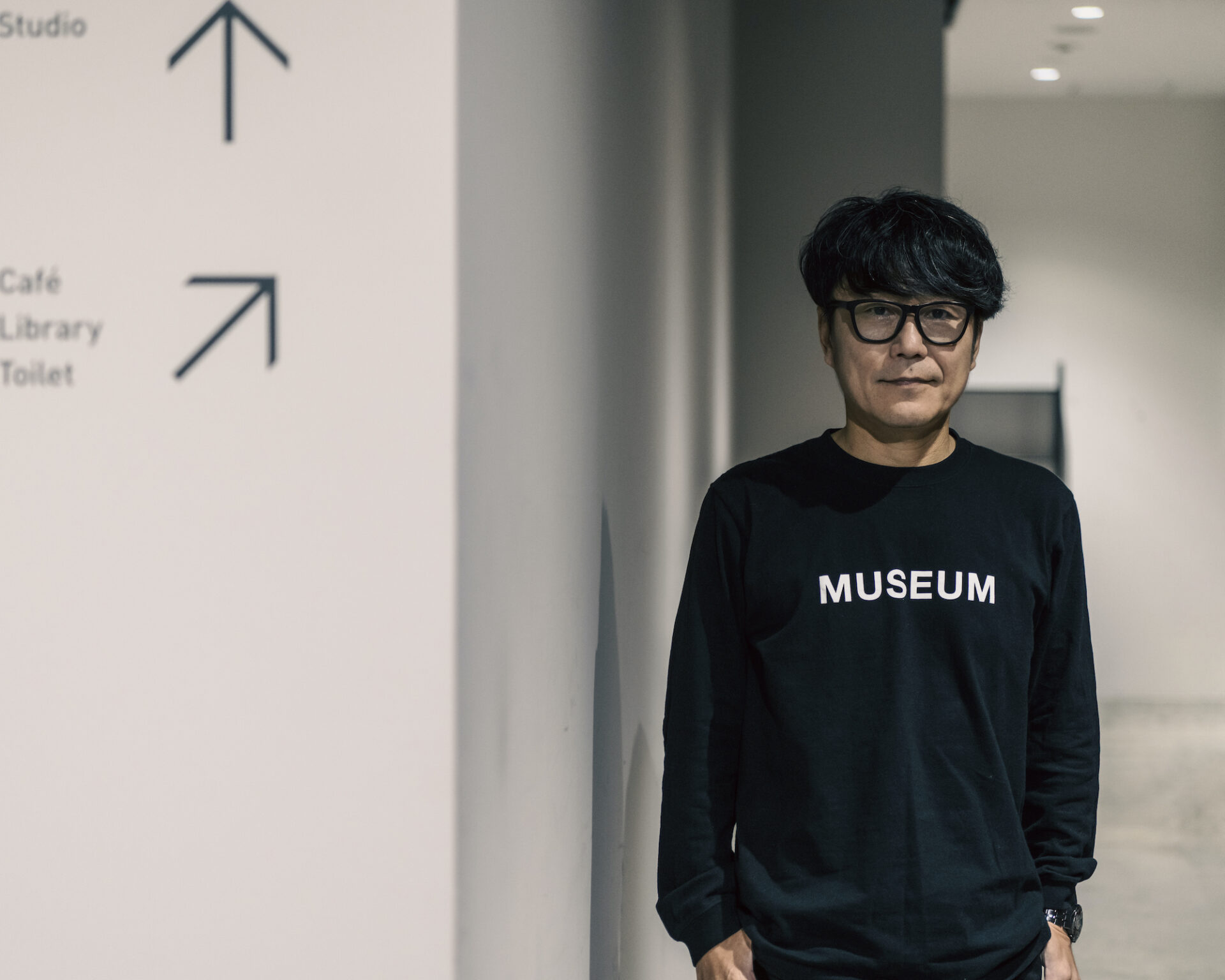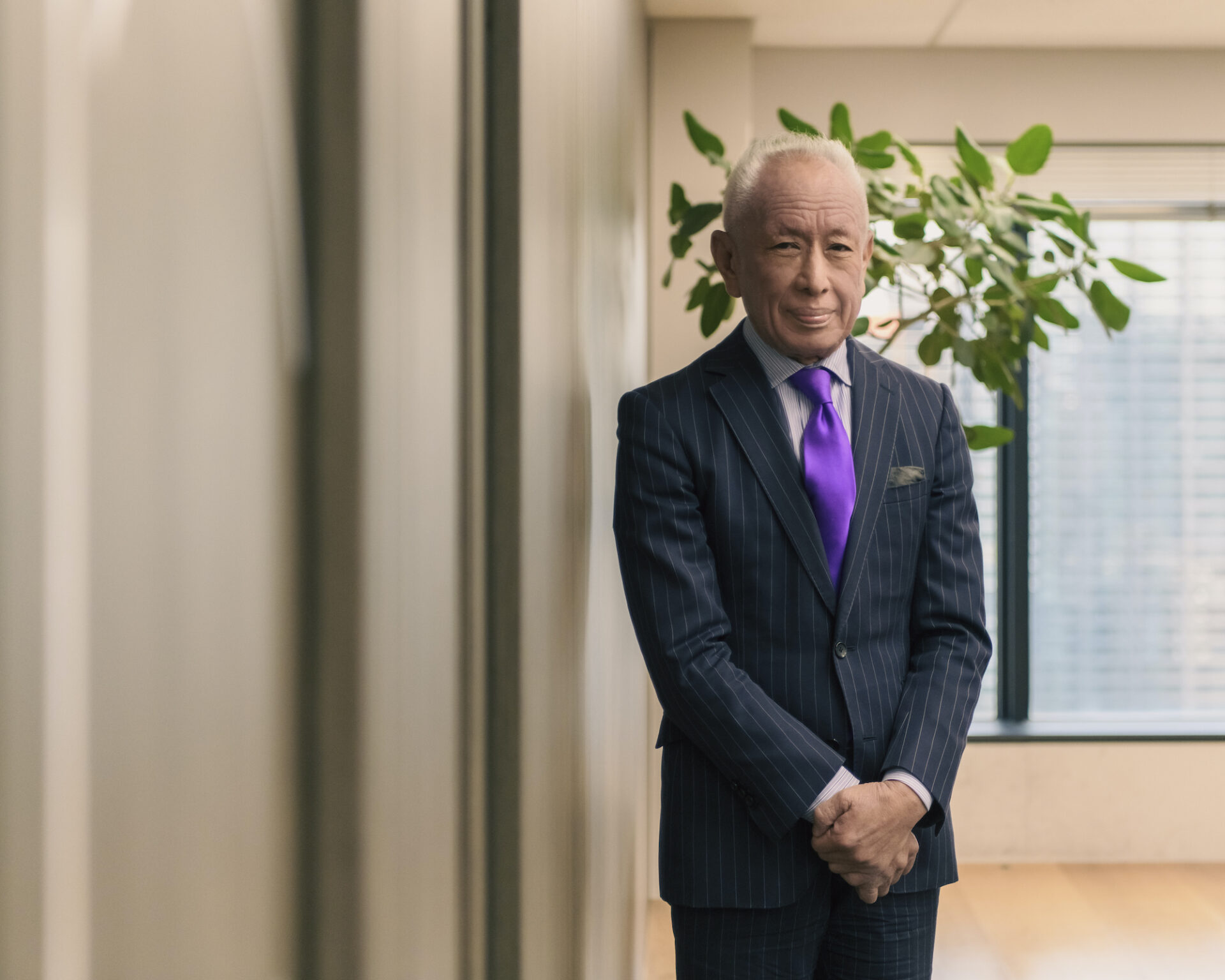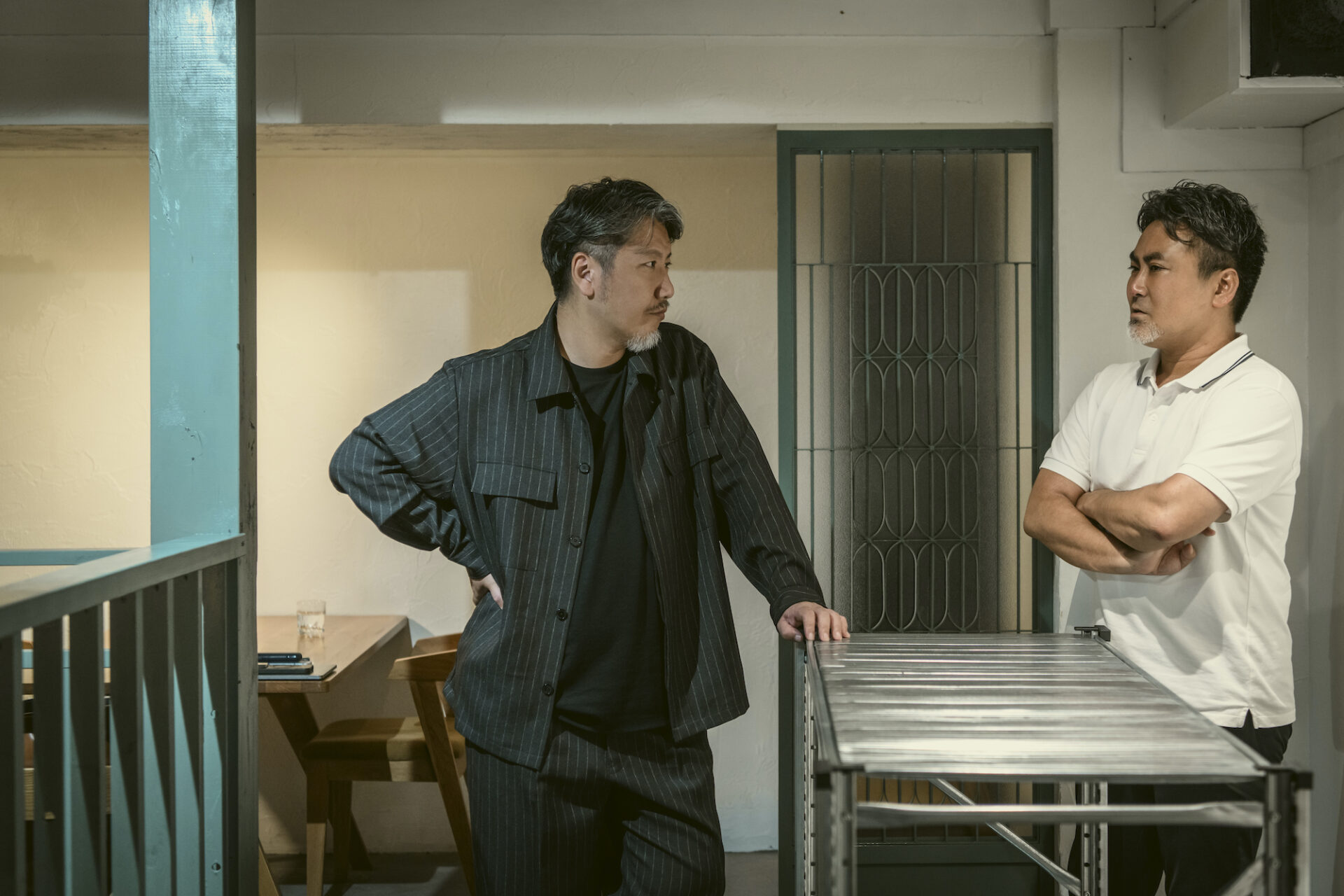
2024-10-31
Vol.11
FUNDINNO, Inc. Senior Manager
Hiroto Tsujishita
-
The Essence of Finance
-
Do even if Different from Others
-
Ability to "Read the Air" and Intuitiveness
-
Why are Companies and Organizations Uncontrollable?
-
Altruism Comes After Self-Interest
Is the true nature of stock trading to gain short-term, large profits through speculative activities? Such activities, which exacerbate the uneven distribution of wealth, have the potential risk of worsening division in society and ruining many people’s happiness. Can Japanese finance overcome such a crisis?
FUNDINNO is a financial institution that provides Japan’s first equity crowdfunding service, through which people can support unlisted ventures as shareholders by investment. It also supports the financing of unlisted companies through a new system called J-ships. Mr. Hiroto Tsujishita, a senior manager of FUNDINNO, says that achieving finance that fosters the happiness of society and people is possible by facing essential issues, involving many people, and gaining their sympathy.
He has worked on various reforms in the finance and human resources industry, where reform is considered difficult to achieve because of vested interests. “Even the private sector can change the world,” he says. Inviting him as a guest, we talked about various topics, including the issues in Japanese finance, the potential of financing startups, and what is necessary to increase the happiness of Japanese society.
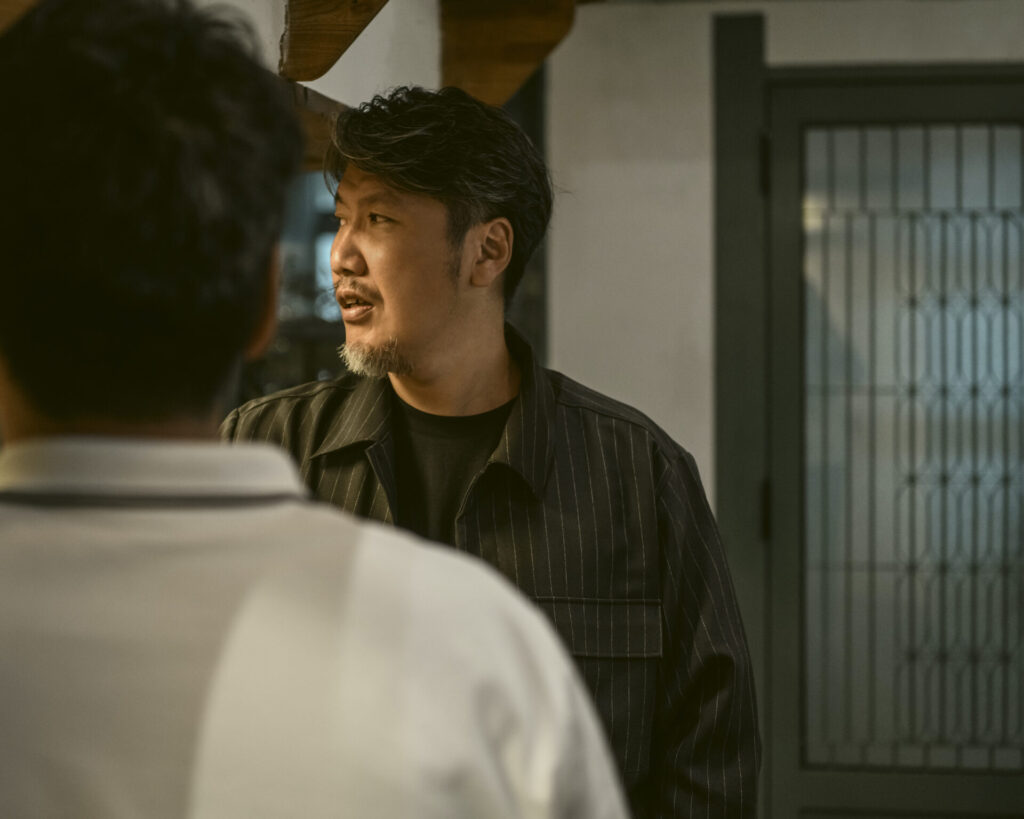
I have always wondered why Japanese people avoid discussing the issue concerning money. (Shigeta)
Masakazu Shigeta: In the “Idealism” series, we have invited people who are active in various fields, including culture, art, marketing, and most recently, architecture, and all of them have unique points of view. If I were to find the common theme running through all of them, I would say it is the question, “What is happiness?” After all, we discuss the ideals to make and keep the people and society happy.
Although there are many things we need to improve the level of happiness in Japanese society, I think the financial aspect is of great importance. Through my own experience of launching new businesses and changing the business model of my family business, I keenly realized that, in this country, it is very difficult to raise capital when necessary. Why? Simply put, people in the financial world are unwilling to take risks. There are few people who have a proper aesthetic sense towards cases, and they can not tell what is risky. In addition, such people often have the right to decide whether or not to invest, which is also a big problem.
——It is a deep-rooted problem, isn’t it?
Shigeta: Yes. Another problem concerning finance in Japan is the short span between investment and recoup. I even think that the short-term payout period is the driving force behind the low level of happiness in Japanese society. In other words, too few people consider the happiness of future generations when they invest.
Of course, we need the minimum amount of money to make a living, and I am not saying that we should make long-term investments at the expense of daily life. However, it might be necessary to make two types of investment in parallel: one for daily life and the other for future generations to live happily. By doing so, I believe more and more people will feel the abundance of society and happiness.
Mr. Tsujishita, in your career in the personnel-service industry and financial businesses, you have seen “money” through people. With tremendous passion, you have been breathing new life into the rigid structure of Japan. How should we, including the finance industry, change to make people’s lives happier and more abundant? I would like to hear your frank opinion.
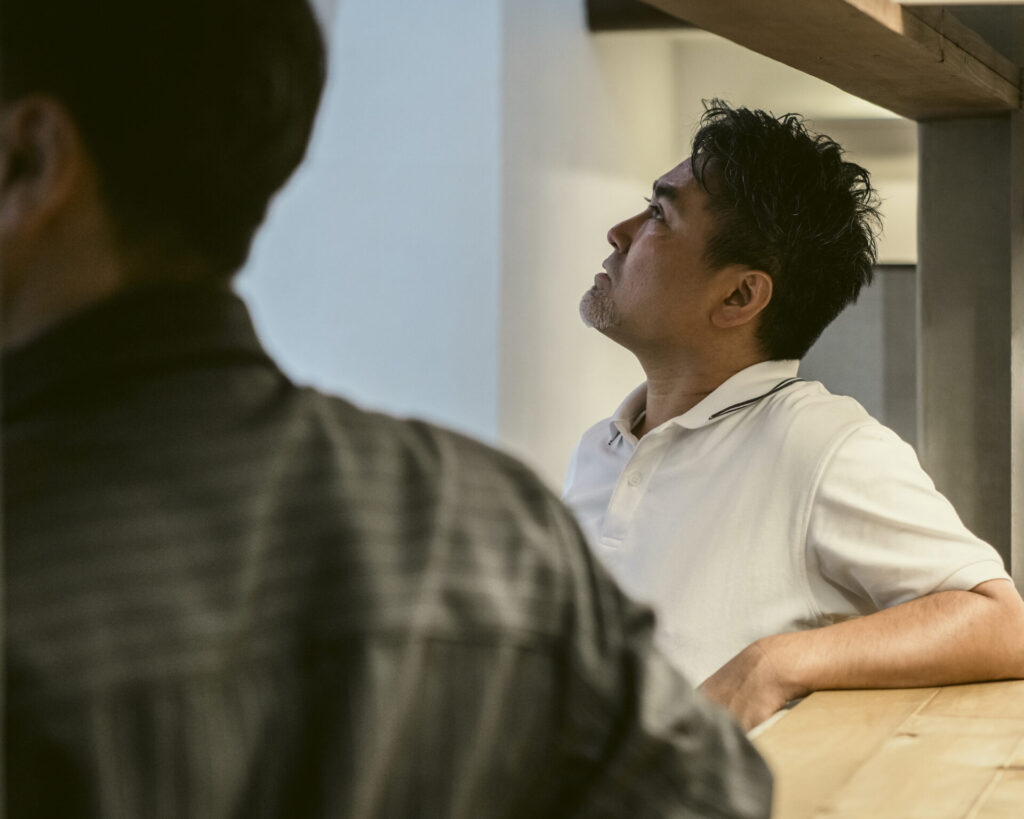
Hiroto Tsujishita: When I was in university, I belonged to a non-profit organization run by students called AIESEC. My experience there taught me that it is important to keep aware of “Why am I doing what I am doing?” After university, I joined a securities company and consistently approached daily work with the idea in mind. There was a major transformation trend from indirect to direct finance at the time, and we planned various services to grasp the change. However, Japanese finance has mostly stayed the same for twenty years since then, which frustrates me.
When I was 29, I joined BizReach, a company that tackled the issue of the human resources market, and realized that in order to change society, taking small steps is inadequate. Nothing will change unless we solve the fundamental problems in the industry structure. Most startups think about solving social issues first, contributing to society, and increasing sales, but is it the essence of things? Rather than just increasing sales, I believe it is far more important to think about how people’s lives change as a result of solving social issues and whether it improves people’s happiness.
——Most companies tend to focus on increasing their sales and profit, and there is a deep-rooted trend that those who contributed to it are highly rated.
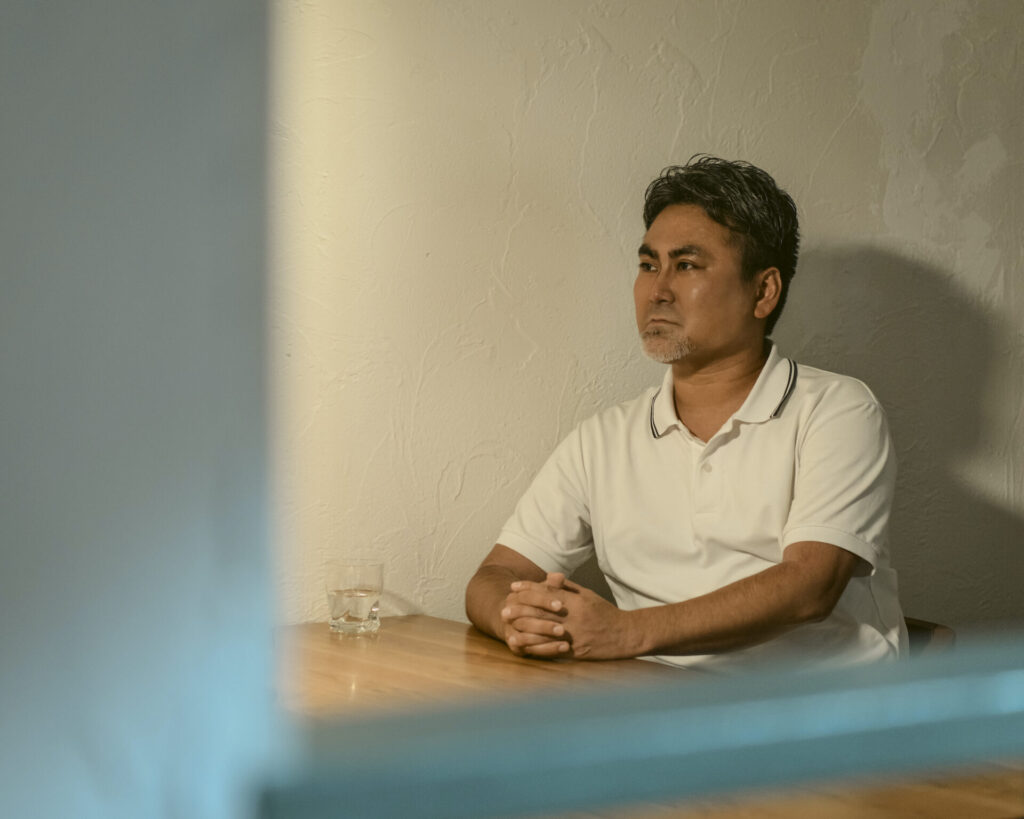
Tsujishita: That might be true. When I was in BizReach, I saw many colleagues and acquaintances start their own businesses one after another. When I accompanied them for capital raising, I was stunned to find that everything venture capitalists and investors asked was like, “How big will the business get?” or “How fast do you expect the speed of growth?”, not the actual contents of the business.
Later, I met a company called FUNDINNO, where I belong now. After joining, I realized that old laws cause many structural problems in the financial industry. Banks, securities companies, and insurance companies share the same business purpose of increasing money, although what they do differs from others. Under the current industry structure, money is concentrated in the business field, where the company can increase the amount of money as fast and as much as possible. You will be fired immediately if you work on something opposite from gathering, increasing, and returning money. Meeting with FUNDINNO made me notice that it is exactly where the problem lies.
The business of FUNDINNO is not like increasing money through investment. What we work on is to build a system to circulate things that are not now. For example, we make buying, managing, and selling unlisted stocks possible. When it has become a normal thing to do, it will not only increase the liquidity of money but also make more people interested in investing.
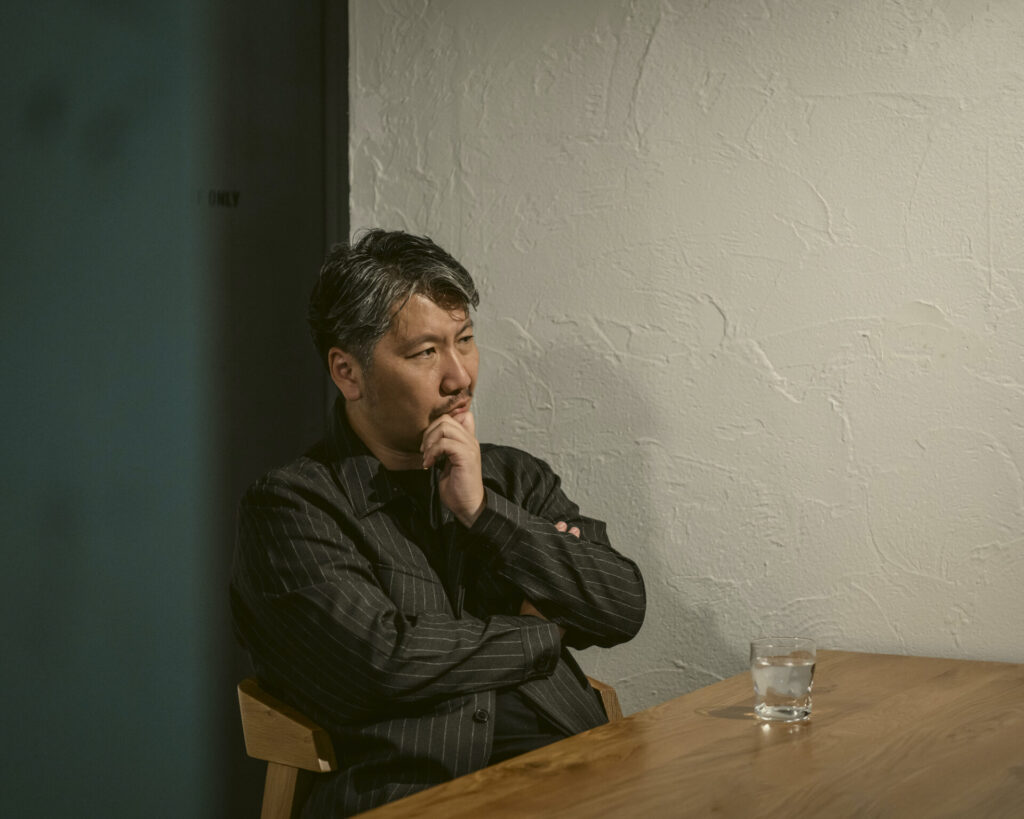
——So, it is also linked to the governmental economic policy of “the shift from saving to investment.”
Tsujishita: I can not do it now due to the legal restraints, but I think it would be nice if I could buy stocks of companies in my region or companies I like as my first investment in life. Speaking of unlisted stock, you can only cash in the stocks when the company goes public or is sold. But if there was a maker called “secondary,” where you can buy and sell unlisted stocks anytime, it would make investing even more accessible. FUNDINNO is trying to achieve it because, of course, we want to improve investors’ convenience, but at the same time, we think listing or selling the company is not the goal in the first place. When I consult with business owners for funding, I often ask where they set the goal for investment recovery. There are cases where companies go public to raise capital because they need a large amount of money to run the business or choose to become a part of another business group through M&A because they expect more business growth from it. Either way, it is hindsight, and I feel something is wrong with the idea of setting it as the target from the beginning.
Shigeta: I am not saying it is good just because it is American style, but when I see the financial system overseas, I keenly feel the low level of financial literacy in Japanese society. I have always wondered why Japanese people try to avoid discussing the issue concerning money.
Tsujishita: Of course, there are differences in financial systems, but I think the real problem is the environment where business owners and investors find it challenging to play an active role. American people do not invest on a volunteer basis; rather, they invest with the idea that they will protect their assets, and the same can be said for unlisted stocks. While the scale of annual trading in unlisted stock is more than 30 trillion yen in the US, since that of Japan stays around 800 billion yen, there is a considerable gap. What makes this difference is whether or not you have markets where you can trade them. It is not because people in the US want to support unlisted companies more than Japanese people.
One of the main factors causing this problem is the law. It is easy to complain that the law is wrong, but that alone will not change anything. How can we make it easier for the government to decide to change the law? It is essential to set up an environment where the government thinks what we say is correct. For this reason, it would be important for those with expertise to propose the ideal situation, and we accumulate achievements by taking the time. If we can do that, the government will amend the law. The economic community can impact and make changes happen by suggesting how the law should be and giving the results of what they have done as feedback. This is what I keenly felt not only in the financial industry but also in the human resources industry.
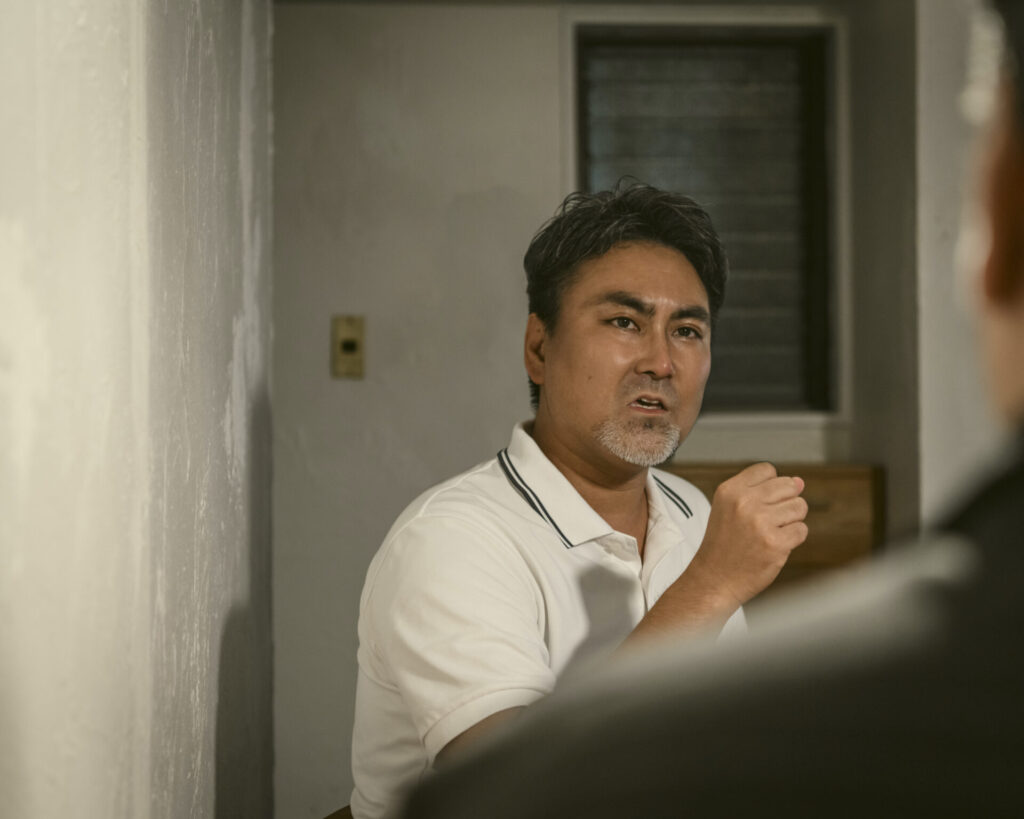
“We can change society by facing the essential issues and getting many people involved.” (Tsujishita)
Shigeta: The story that even private companies can influence politics and change the social structure gives me hope. Both BizReach and FUNDINNO started with problem consciousness towards the current system and structure. They launched new businesses and services by facing the essential issue that Japan would be left behind if it were unsolved.
Tsujishita: Most people do not think voting will change society. So, I think I am lucky because I have experienced change through business. The thing is, we can change society by facing the essential issues and getting many people involved.
——You said increasing the liquidity of unlisted stock would lead to more people becoming interested in investment and give more opportunities for the companies to raise capital, but are there any downsides?
Tsujishita: I don’t think a situation where anyone can easily get financing is preferable. If there were a platform where startups could easily raise capital, it would only increase the number of companies with low expectations of growth, which has no point. It would harm the market if companies with no growth continue to be listed.
Shigeta: Mr. Nobuyuki Takeda, an active musician and administrative scrivener, said something similar when he joined us as a guest before.
Although it has become easier for anyone to stream and distribute music online, it just increases the number of “weeds” if the kinds of music that are not created seriously are distributed.
As for the liquidity of finance, there should be natural selection by the law of the jungle, but if there is no natural selection at all, it is a critical situation for the ecosystem. Until I started the “Idealism” series, I thought happiness meant that everybody was equal, but I have come to think in the past year that reality is not such a well-balanced story.
Along with the opinion that natural selection should work in the stock market, there remains the issue of the managers who do not have the perspective required for them. The best example is that they highly depend on business consultants. When they raise capital, I often see managers transfer business plans made by consultants to financial institutions without a glance.
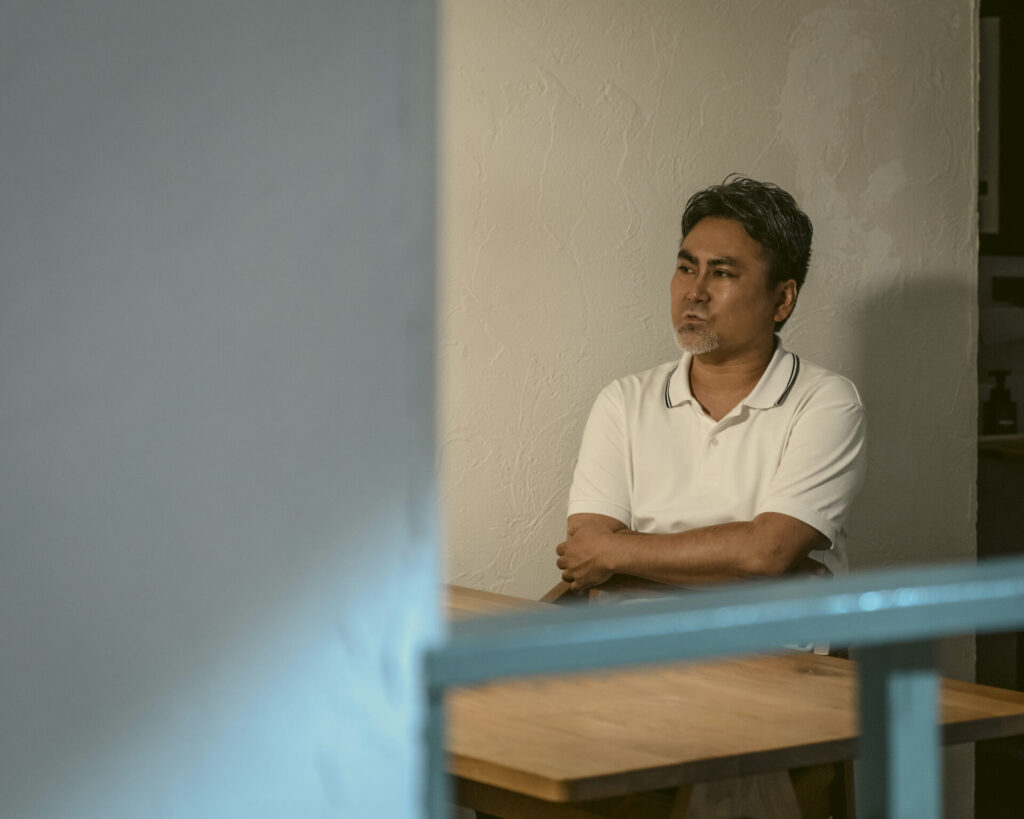
Tsujishita: The important thing is to think about what you are going to outsource and why.
Shigeta: When you are involved with outsourcing, you must be careful not to just leave the work. It would be best if you had the idea that you will increase your business literacy by outsourcing. Otherwise, the counter side will take advantage of you.
Tsujishita: The mid-career recruitment activities of companies have long been carried out in the form of outsourcing because it is easier than doing it themselves. When it comes to recruitment for new graduates, on the contrary, they visit universities across Japan, hold job fairs, and invite students to come to see their company even if students are uninterested. Once it becomes mid-career recruitment, they don’t do it themselves, though. But now, it has been gradually changing. You should have an apparent reason or purpose when you outsource, not merely because you can afford it or receive a sales pitch.
Shigeta: The other day, I was invited to a seminar as a lecturer. The seminar was organized by an organization called GUNMA FUTURE INNOVATION LAB, and they asked me to join because the theme was the creation of new businesses and entry into different industries.
What I wanted to get across was that there are too many business owners who mistakenly believe they have to do something different than others to make innovation occur. The same can be said for school education. Schools used to work as a place where children were treated homogeneously and educated to have learning abilities equally. Nowadays, however, children are encouraged to do things differently than others, both at school and at home. I assume it has something to do with the idea of business owners I just mentioned, but I think that way of thinking is wrong. It is “do something even if it is different than others” that matters, not “do something different than others,” and that is what I told the audience in the seminar.
Both BizReach and FUNDINNO did not start the business to do something different than others, right? Looking around society, they thought this kind of service was necessary and started the company with the strong will that they would do it even if others didn’t. “Do you have a strong energy that will keep you going and continue the business for society? Won’t your energy run out when you find what you do is different from others? If not, let’s do it.” I told them that what I have been doing is something simple like this, but it is only the way to success, and they really sympathized with me.
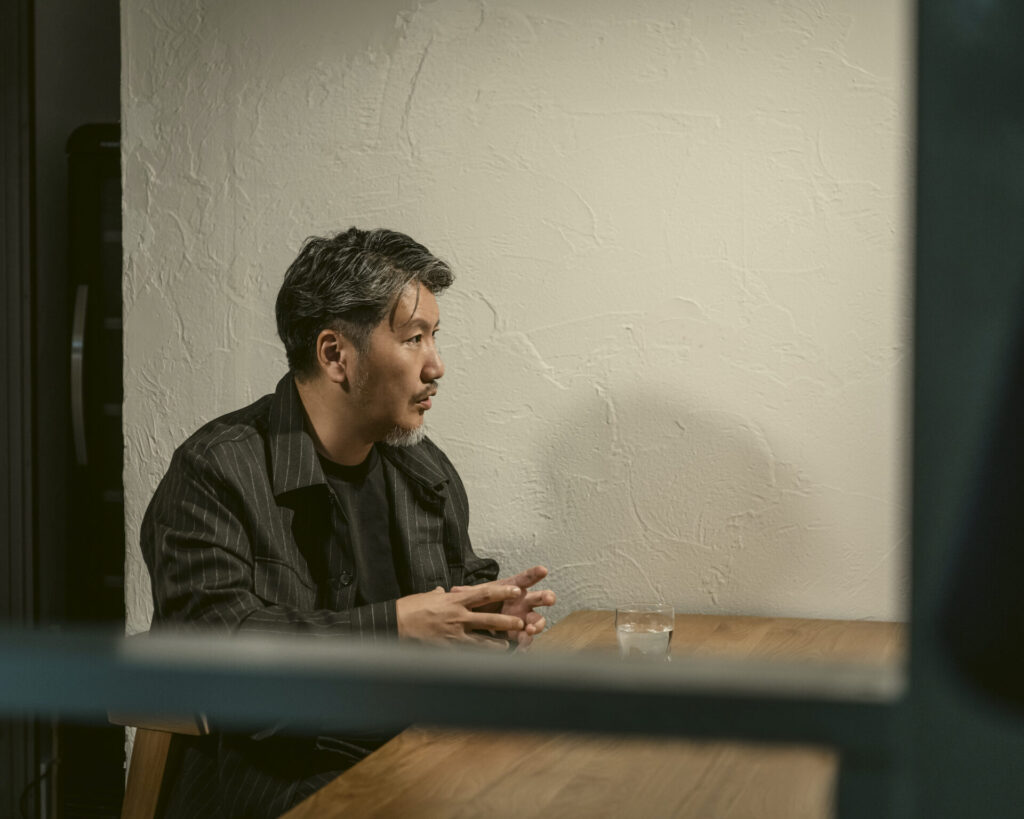
“People with a good balance between financial aspect and happiness level listen to their intuition.” (Shigeta)
Tsujishita: Since one of the themes of today’s dialogue is “happiness,” I would like to share something I often paid attention to when I was in the human resources industry: that is how to reduce the number of phone calls to make. This is because I had the perception that sales are basically annoying. I used to leave a message when the person I phoned was absent, but we should tell the right message to the right person. It makes the proposal more worthwhile even if declined, and chances are it reaches the other person’s heart. No matter how many things you try to do, if they are wrong, it only makes both sides unhappy. I told the sales team members that we should change the sales style so that customers would appreciate our phone calls or emails. If we can make essential efforts, it will make both sides happy and increase happiness.
Shigeta: I recently started reading a book titled “Kuuki no Kenkyu (Study of Air),” written by Shichihei Yamamoto and published by Bunsyun Bunko. “Read the Air” is a common expression we use to refer to the act of sensing the atmosphere or emotion of others and taking action according to the situation. I think that is a wonderful skill for Japanese people. In Western communication, people try to convey themselves before they understand others. Of course, it is important to do so on some occasions, but it doesn’t mean that Japanese people should try open communication as people in Western countries do.
If you receive words of gratitude from somebody you contact in business, it is surely because you have understood them and provided the information they need when they need it. You will never receive such words if you think it is just fine to send information at your convenience. Whether it is finance, staffing service, or employment issues, it is often criticized that Japan is one lap behind the Western countries. But it doesn’t mean that we should start following the Western way.
Neither the minimalism of the Nordic nor the politeness of the East, but there should be a style that fits the Japanese way. In that sense, I have high expectations for Japan. I would like to find even a little outline of what Japan should be like through conversations like this.
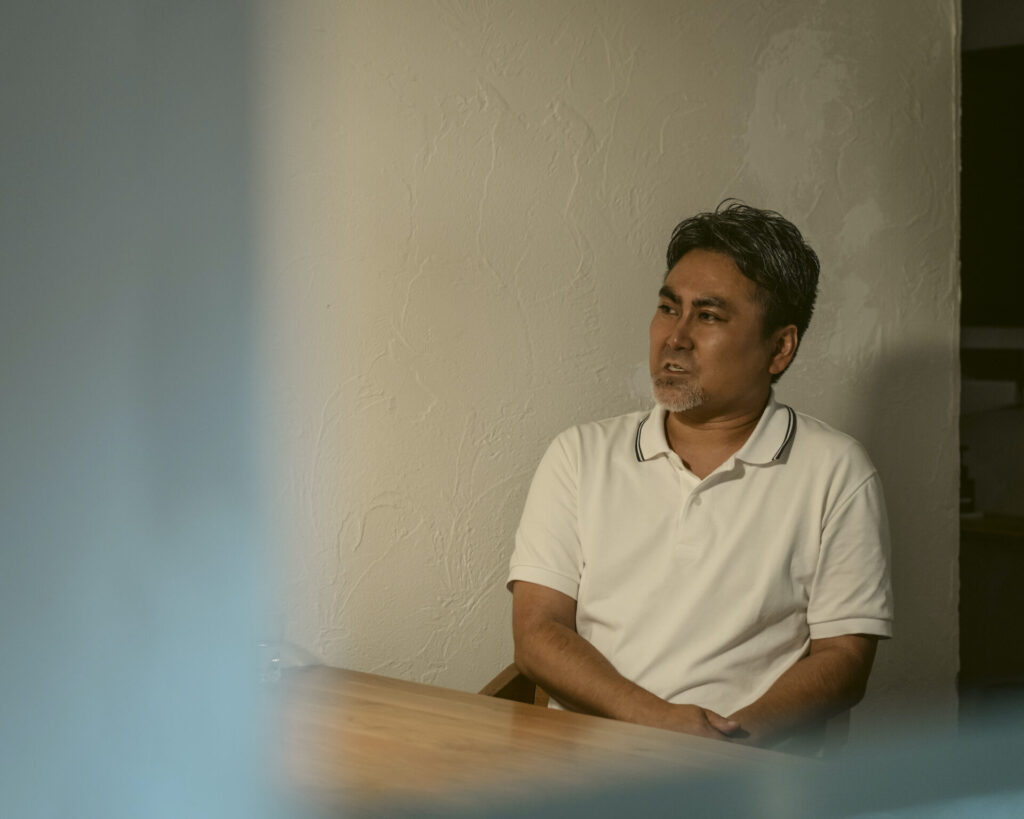
Tsujishita: It is true that Japan’s financial and employment fields are often said to suffer from Galapagos syndrome. However, Japanese society worked well with it, and people could feel a certain level of happiness. Looking around the world, you will notice that few countries could take preemptive measures to change. In most cases, they had no choice but to change with a destructive situation approaching. Thinking about Japan for the next 50 years, nobody thinks that the status quo is good enough, so I’m sure change will take place.
Shigeta: I believe intuition matters when a major paradigm shift occurs. It is important to think about how you understand things intuitively and instinctively to take the following actions. The same is true of investment. Even if you read analysts’ comments in the “Shikiho” (Japan Company Handbook) and learn about the daily movements of stock prices, in the end, you make an investment decision based on whether or not the stock is appealing to you. The same can be said for job hunting. I hardly ever heard that people who think logically about their career, like how their career will become if they join a particular company, have achieved good results. On the contrary, those who intuitively decide their career have often achieved better results and higher happiness. I think those with a good balance between financial aspect and happiness level listen to their intuition. Sharpening our human instinctive ability will be increasingly important in all aspects of our lives in the future.
Tsujishita: I once asked an investor what he pays attention to when making investment decisions. Since the person makes many business plans at work, I asked him if it was the business plan, but he denied it. He then told me that he had worked with more than 1,000 clients, but 99% of the time, the business didn’t progress as planned. He values managers’ facial expressions and responses more than business plans. Also, he values how they changed business directions and overcame problems when a business was not going as planned. Those things are what he uses for investment decisions. Although we often group all of them as “unlisted stocks,” since there are various growth phases, such as “seed,” “early,” “middle,” and “later,” the criteria for investment decisions differ. However, I believe the younger the companies are, the more experience-based intuition you can leverage.
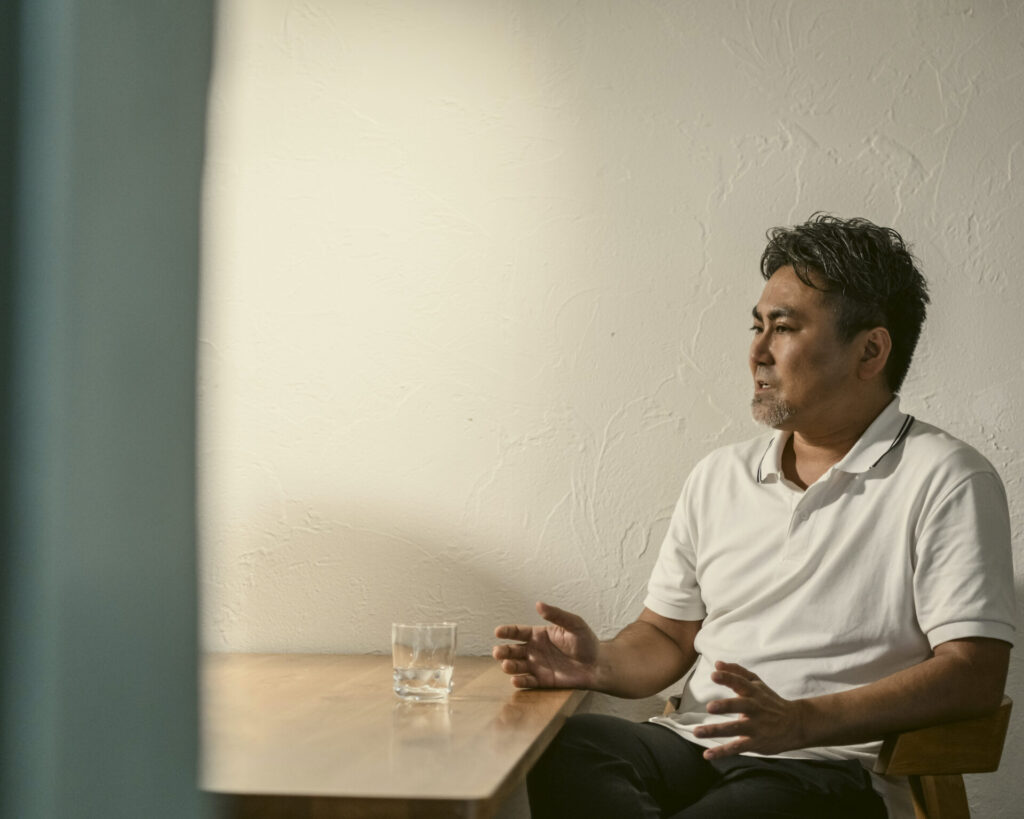
“The management and shareholders work together to think about what needs to be done to grow the business. That is how the relationship between companies and shareholders should be.” (Tsujishita)
Shigeta: For me, management is very “dynamic” by nature. It is difficult to make an example, but I feel it is something like “water” or “starchy sauce.”
Tsujishita: I fully understand the feeling. You mentioned earlier that it is difficult for people to achieve the careers they envision if they think logically. The same is true of management, which is highly affected by the changes in the market and environment. There is a higher possibility that things will go differently than you expected. What is important is how to overcome situations when things don’t go as planned. What counts at such time is an emotion that you want to work with a specific person or having a clear idea of why you are doing what you are doing. When your “emotion” and “reason” are side by side, you are perseverant when push comes to shove, and you get motivated to continue. Above all, you are happier and demonstrate better performance when you do things proactively.
Shigeta: When things don’t go as planned, sometimes things turn out in a better direction than expected, not always worse. Whenever I examine the factor of the unexpected result, it is always “people.”
A company is a collection of people who have their own will, and the individual movements are something like cells. If you could control every unit of cells, you would be able to achieve the goal as planned, but in reality, that is not easy. When staff members approach the jobs with extremely high motivation and their energy gets into a single collective entity to perform more than usual, the result goes beyond what was planned. But if the cells get solid and connect in a strange way, you can not expect a good result. If a company and organization are solid, we can fix the collapsed part into the original form, but since it is something “dynamic,” it changes the form once it collapses, and there is no meaning to fix it. All I can do is change the direction a little bit so that it becomes a better shape. Companies and organizations are uncontrollable to such an extent.
Tsujishita: After all, each person has to be able to act independently and proactively, right?
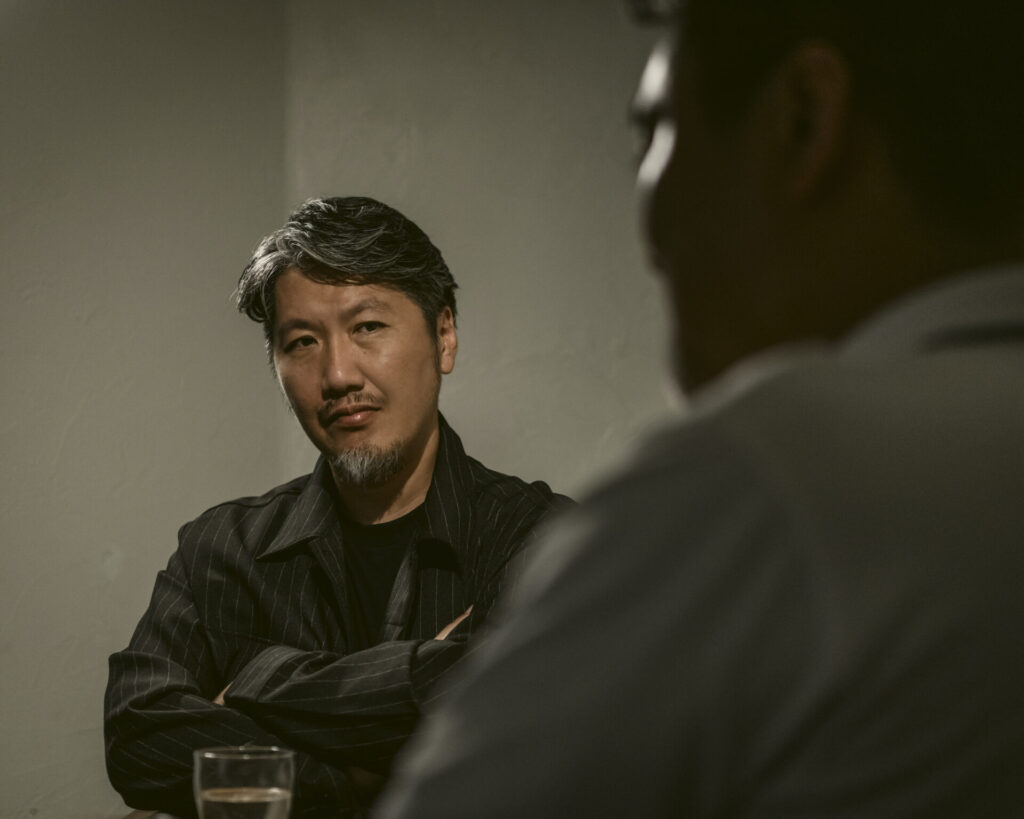
Shigeta: The human body is also made up of countless cells, and it is difficult to control all cells to make them move as you want.
We often use the expression “in the zone” to refer to the state athletes reach when they are in a state of extreme concentration. Although they practice so that they can get into the state all the time, it is not something they can make happen anytime. Rather, it is something that happens unexpectedly. If you can achieve it frequently, you can perform like Ohtani.
The same can be said of business owners. How to get into the zone is what matters. I believe that is the quality that is fundamentally required of managers. However, since companies and organizations are uncontrollable by nature, it is not a simple story that you can make happen by doing routine work. As a result of accumulating things that are difficult to verbalize, you might achieve it constantly or be unable to make it happen at all. So, for companies, it is the relationship between the management and employers, and in the world of finance, it is the relationship between the management and investors that should be connected with deep engagement, believing in the intuitiveness of each other, I believe.
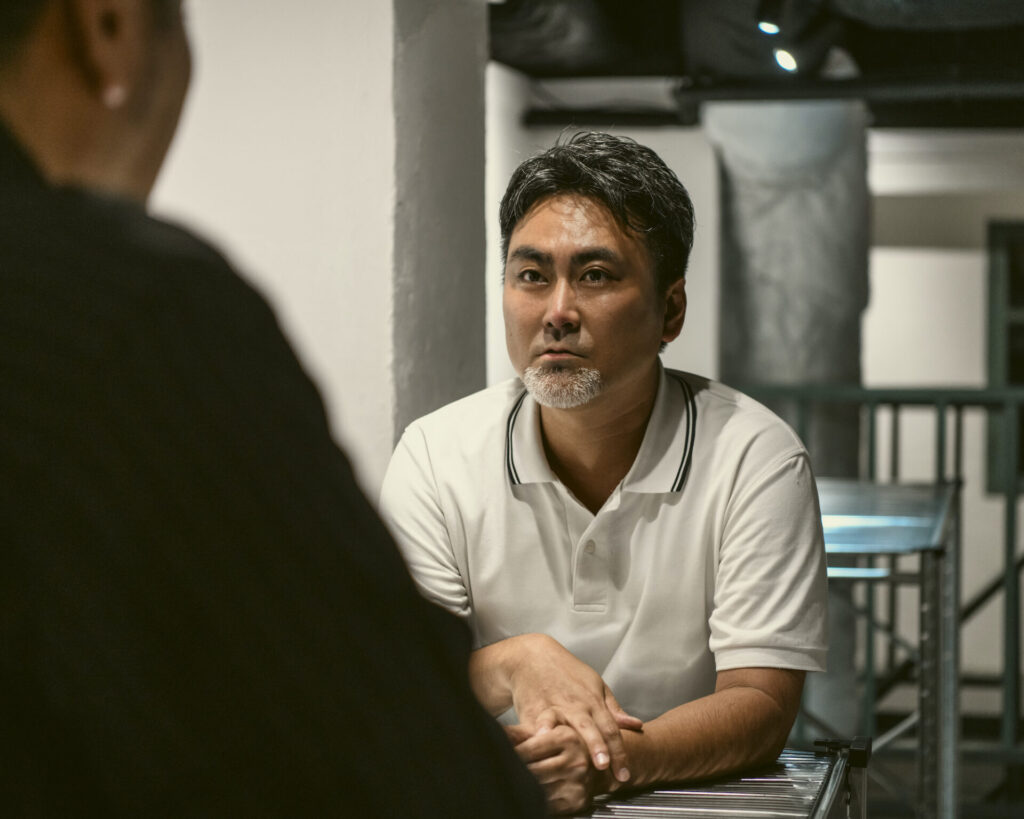
Tsujishita: What I find fascinating in my current job is that investors continue to think they want to help and support the company even after investment. When the business is not going well, they try to support the company instead of scolding. They are not shareholders who are more talk than action. Instead, they get involved with the business and, in some cases, even build sales. Shareholders are like fellow management staff with good relationships.
In order to grow the business, the management and shareholders work together to think about what needs to be done. That is how the relationship between companies and shareholders should be. Although the speculative aspect has been emphasized by wars and the evolution of financial engineering designed by smart people, it would be fine for the relationship to return to its origin. Or, the world where management and shareholders work side by side can co-exist with the world of speculative investment.
Shigeta: Business owners who receive investment have a negative image of the situation where venture capitalists and investors deeply get involved in the management of the company. However, if the investor and the company that receives investment share the same perspective, then you have to welcome their involvement and even ask them to point out the problems of the company, if any. OSAJI, the company I manage, was spun off last year and accepted external capital. I asked investors to get involved and give us advice without hesitation rather than just standing on the sidelines. That is because I really trust them and I believe that our business will be more exciting and valuable with their ideas.

“Only after you are satisfied with the current state and your desire is met can you take action considering the interests of others. Altruism does not come before self-interest.” (Tsujishita)
Shigeta: At first, I was a little nervous about how the dialogue would go, but as we spent much time discussing various topics, I could get excellent insights.
Tsujishita: It was only recently that I came to reach the idea I shared today. I thought about various things when I took a break a while after suffering from a health problem. Until then, I thought jobs were where “what you can do,” “what you want to do,” and “what the world needs” overlap. But, after all, I want to do what I want. If you spend time at a job without such motivation, it is better not to do it at all. What is important is to ask yourself where you are standing now, which direction you are heading, and for what. By doing this, you will find a motivation for the next step. This is true not only in jobs but also in life.
Shigeta: Performance in every aspect deteriorates as you get older. So, it might be better to stop and think from time to time.
Tsujishita: Even a person like you feels your performance decreases?
Shigeta: I have to admit that my desire to do this and that is decreasing. But I don’t take it negatively. Instead, I feel the desire condenses into one place, and my body naturally reacts according to it.
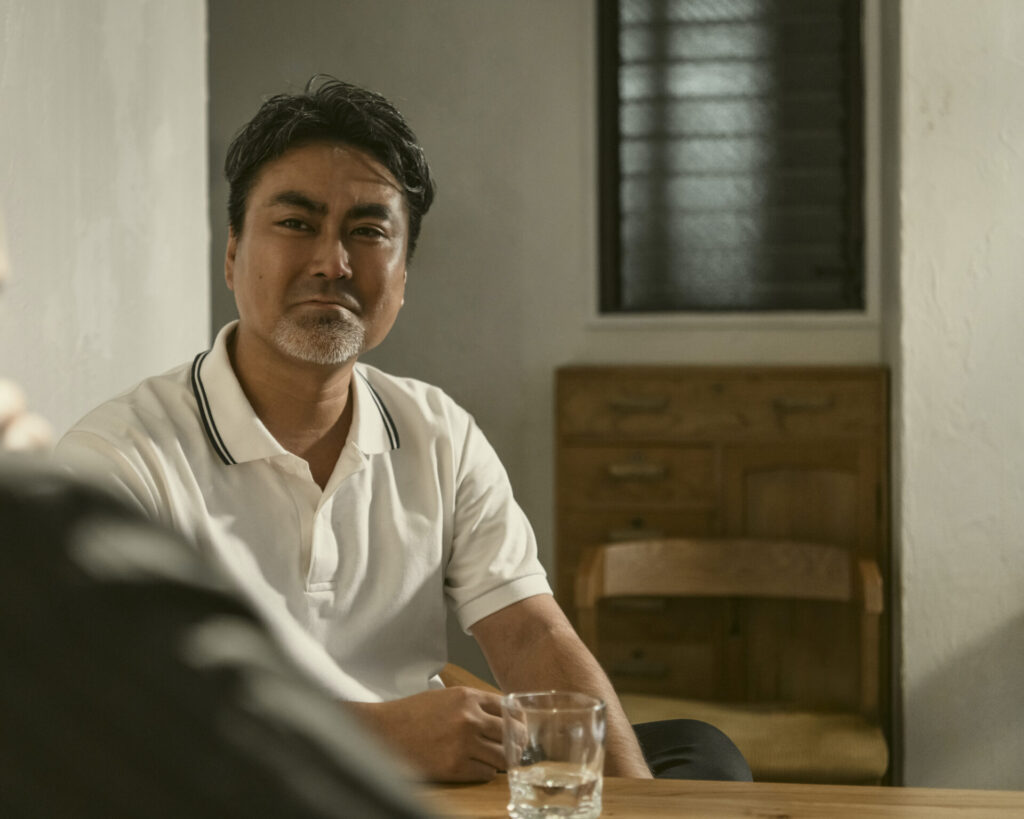
Tsujishita: That is how people should be. I find more and more things that I want to do, and I’m losing control. (laughs)
Shigeta: Recently, I often think about what I want to be next year. I want to have more free time around this time next year. I wish things that I am working on would get simpler. In your thirties, being busy was cool, but after you turn forty, being busy is not a cool thing.
Tsujishita: The Chinese character “busy” consists of “heart” and “loss,” which means you are in a state of no space in your heart.
Shigeta: Have you heard of the term “INFJ?” I heard it for the first time recently. It seems it refers to people who contribute to society and organizations by supporting others.
Tsujishita: I thought altruistic behaviors were important until I damaged my health. But I noticed afterward that I have to be happy first.
Only after you are satisfied with the current state and your desire is met can you take action considering the interests of others. Altruism does not come before self-interest. So, I define myself as egoistic now.
Shigeta: I think that is right. Some people say that CSR activities are altruistic in nature, but for me, that is not right. If you want to make CSR activities sustainable, you have to make self-interested commercial activities naturally benefit people and society altruistically. It is not correct to try to live altruistically from the beginning. As a result of living selfishly, your actions contribute to the happiness of others, and that is the correct way to think.
Tsujishita: When somebody thanks me for my work, I feel awkward because I do it for my own interest.
Shigeta: I understand what you are saying. I feel the same way when I cook. My mood is more like, “Thank you for letting me cook.”
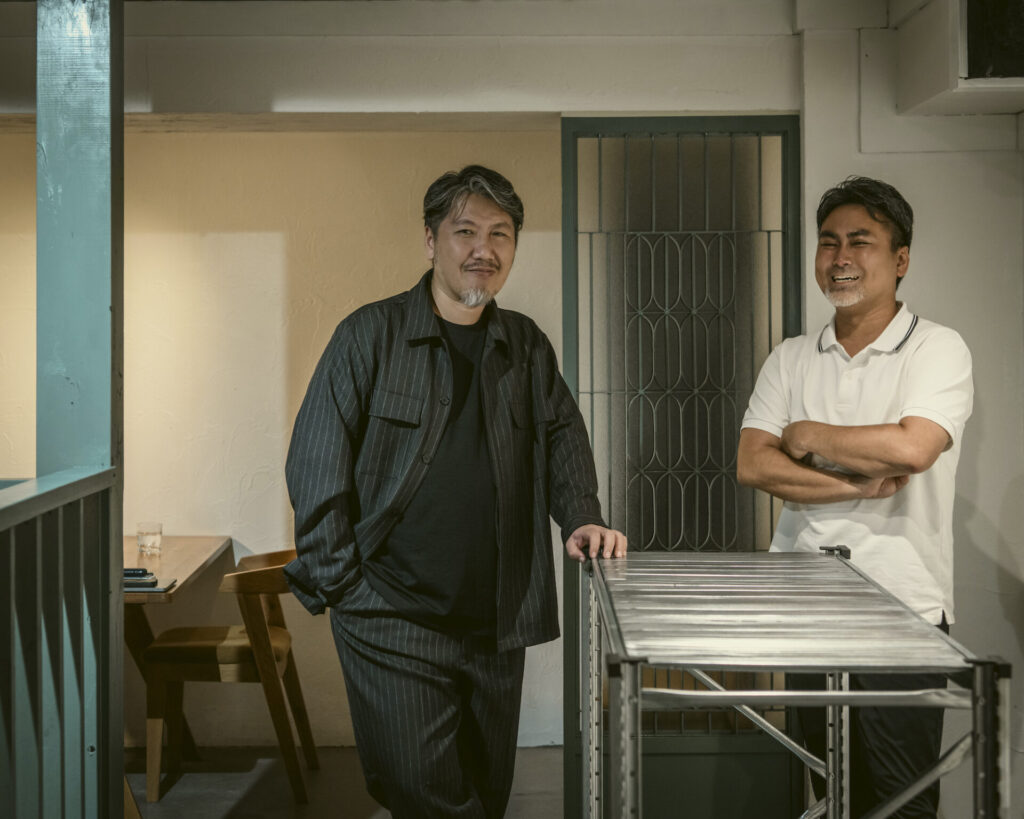
Note:
Unlisted Stocks
While the term “listed stocks” refers to the stocks on a stock exchange, the term “unlisted stocks” refers to the stocks that are not available on a stock exchange. Generally, unlisted stocks can not be traded on the stock exchange, and they do not have market prices. However, trade can be made in a case where the seller and buyer agree, and there are funds that invest in unlisted stocks by collecting funds from institutional investors and the wealthy class. With the amendment of the Financial Instruments and Exchange Act in May 2015, equity crowdfunding became available in Japan. Also, the introduction of a system called J-ships has given diversified opportunities to make direct investments in unlisted stocks.
Profile
-
Hiroto Tsujishita
Tsujishita was born in 1983 in Chiba prefecture. After graduating from the Department of Business Administration at Aoyama Gakuin University, he joined SMBC Nikko Securities Inc., where he worked as a retail salesperson and engaged in the general affairs of branch offices.
He worked for BizReach and PERSOL before joining FUNDINNO, a financial institution that provides equity crowdfunding and other services, in April 2021. He is involved in funding and funding support for venture companies planning to go public. He is also an adjunct lecturer at Aoyama Gakuin University and co-organizer of Morning Study Seisson for MBA Abroad. He is the father of two children and is actively involved in household chores. -
Masakazu Shigeta
After working as an engineer in the music industry, Shigeta began his career as a cosmetics developer in 2001. Since 2004, he has produced a variety of cosmetics brands in the healthcare business of Nitto Denka Kogyo Co., Ltd., a metal surface treatment company founded by his great-grandfather.
In 2017, he founded “OSAJI,” a skincare lifestyle brand, and became the brand director. He also produced “kako,” a specialized shop for home fragrances perfume in Kuramae, Tokyo, in 2021, and a combined shop of “OSAJI”, “kako”, and a restaurant “enso” in Kamakura, Kanagawa, in 2022.
In 2023, using Nitto Denka Kogyo’s skills, he also produced a pottery brand, “HEGE.”Publications
Taberu Biyou (Eating for Beauty) (SHUFU TO SEIKATSU SHA, 2024)
42-Sai ni Nattara Yameru Biyou, Hajimeru Biyou (Beauty cares to quit and start when you turn 42) (Takarajimasha, 2022)
Information
FUNDINNO
FUNDINNO is a financial institution established in 2015 with the mission of “Creating the Future where People Can Challenge Fairly.” The company aims to open and democratize the Japanese venture market and provides Japan’s first equity crowdfunding services. The company operates a platform named after the company, FUNDINNO, that matches companies looking for funding and “fan shareholders” who want to support business. The company also operates FUNDINNO PLUS+, a service that matches investors with companies and startups needing large-scale financing, and FUNDINNO MARKET, a secondary market where unlisted stock can be traded online.
https://fundinno.com/
-
Photographs:Eisuke Komatsubara
-
Text:Masahiro Kamijo
NEWS LETTER
理想論 最新記事の
更新情報をお届けします
ご登録はこちら
ご登録はこちら
メールアドレス
ご登録ありがとうございます。
ご登録確認メールをお送りいたします。

